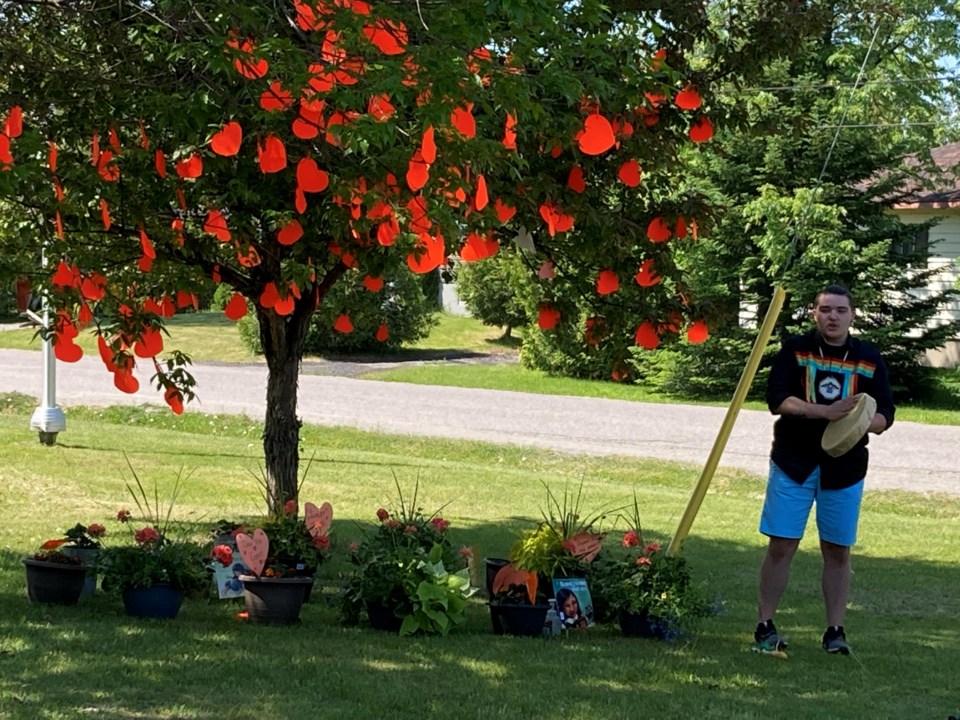In light of the renewed calls for education surrounding the history of residential schools in Canada, École publique Franco-Nord in Azilda created a garden of hearts on Friday, June 4, to commemorate the 215 children who died in Kamloops, British Columbia.
A release from the school’s board, Conseil scolaire public du Grand Nord de l’Ontario (CSPGNO), said the ceremony was a chance for the school community to show their “solidarity and empathy towards the communities that have been victimized by the past.”
In their memory, the École Franco-Nord team hung 215 hearts on tree branches on the school grounds.
Opening the garden was a ceremony by Connor Lafortune, who was proud to take part both as a Francophone and a member of Dokis First Nation.
Lafortune was contacted by musician and CSPGNO cultural mediator in Indigenous Education, Stef Paquette, and given the freedom to offer whatever Lafortune felt was appropriate. It was the first ceremony he’d performed in person in more than a year.
“It was so nice to be able to do something meaningful without the barrier of a screen,” said Lafortune. “I was honored when Stef asked me, and I was also honored to see what the students have done and how they have been able to learn Canada's history.”
Though he knows the information will be hard for both youth, and many adults, to hear, he feels it is more than necessary.
“As Indigenous people, we have had no choice but to learn it,” said Lafortune. “We have had to carry this knowledge in our bundle since we were little, it has been ingrained in us. I hope that with more people being able to have this knowledge and push for change, we no longer have to carry that bundle alone.”
He also says that this moment in history is important to healing.
“I believe this is the first time our people have been allowed to grieve,” said Lafortune. “To feel anger, sadness, and pain. We have finally been given permission to feel. And although I hope many things can come of this, the thing I hold dearest to my heart is being able to honor those children, bring them home, and bring home all of the other lost and forgotten children too.”
